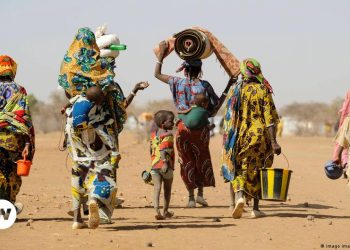A recent study has revealed worrying gender disparities among forcibly displaced persons (FDPs) in Ghana, highlighting the heightened vulnerabilities of women and girls.
The research, led by Prof. Mary B. Setrana, IDRC Research Chair on Forced Displacement in Anglophone West Africa and Director of the Centre of Migration Studies based at the University of Ghana and her team, details the economic struggles, security risks, and social barriers facing displaced women.
The study, which surveyed 493 displaced persons, found that young females are the most vulnerable to gender-based violence (GBV), with 48% of respondents identifying them as at risk. Another 13% pointed to adult women as particularly vulnerable.
The findings indicate that 10% of FDPs have experienced GBV since their displacement, with the incidence higher among refugees (15%) than among internally displaced persons (5%). Researchers caution that the actual figures may be higher, as many survivors do not report incidents due to stigma or lack of access to support services.
Despite the risks, only 11% of respondents reported having accessed or known someone who accessed GBV support services. The researchers describe this as a critical gap in assistance for survivors, stressing the need for better protection mechanisms within host communities.
The study also highlights disparities in access to education and economic opportunities for displaced women and girls. Most respondents rated their access to education and employment opportunities as moderate, but 16% of refugee girls and 5% of internally displaced boys ranked their access at the lowest level.
Researchers say economic hardship, cultural barriers, and gender discrimination continue to restrict opportunities for displaced girls, reinforcing cycles of poverty and dependence. They warn that these disparities could have long-term consequences, limiting the ability of displaced women to achieve self-sufficiency and contribute meaningfully to their host communities.
Despite these challenges, the research suggests that women are becoming more involved in addressing displacement within their communities. More than half of respondents (53%) said women’s participation in community development and decision-making is increasing, while 60% said youth involvement in such processes is also on the rise. However, the study points out that barriers such as limited access to productive resources and entrenched gender norms continue to hinder women’s full participation in economic and leadership roles.
Prof. Setrana and her team reported the need for targeted interventions to address these disparities, urging policymakers and humanitarian organizations to prioritize gender-responsive strategies. The study suggests that without deliberate efforts to enhance access to education, economic resources, and protection mechanisms, displaced women and girls will remain marginalized.
The research was supported by the International Development Research Centre (IDRC), which funds studies on forced displacement to strengthen knowledge and evidence-based policymaking in the Global South. The IDRC’s goal is to support solutions that promote social and economic inclusion, particularly for vulnerable populations affected by displacement.

